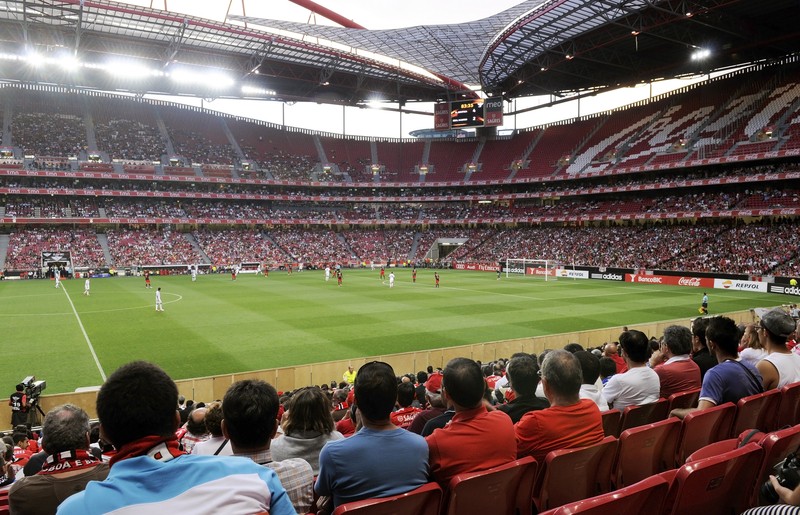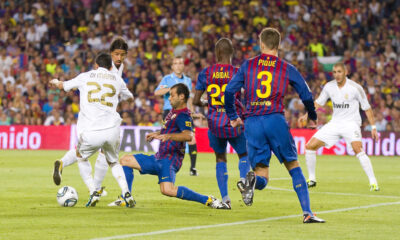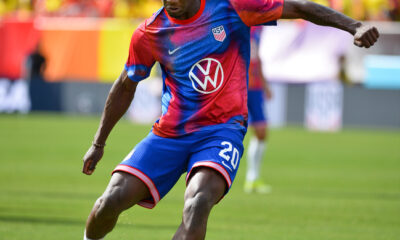
The Legal Battle Over Player Workload in Global Football
Escalating Concern Over Player Workload
On a typical Monday in a nondescript conference room in Brussels, the ongoing dispute over the workload of elite football players progressed into the realm of legal action. The frequency of games required of top-tier players has become one of the most contentious issues in modern football, with players and coaches consistently requesting organizers to streamline the schedule and ensure more rest periods.
Notable incidents such as the injuries to top players like Carvajal and Rodri have fueled the debate, questioning whether the packed schedules of national teams are to blame. More recently, the debate has intensified with Spain international and Manchester City star, Rodri, suggesting players are on the brink of striking over the issue.
The Legal Turn of Events
The argument took a legal turn when the worldwide players’ union, known as FIFPro, and the European Leagues, representing 37 domestic leagues, jointly lodged an antitrust complaint against FIFA at the European Commission in Brussels. The complaint alleges that FIFA, the global governing body of football, is misusing its dual role as both a tournament organizer and regulator.
The aim of the complaint is to prompt the Commission to rule in their favor, obligating FIFA to involve players and leagues in decisions about the international match calendar. This could potentially result in a shift in power regarding scheduling and may take years to resolve.
The Case for Legal Action
European major leagues and FIFPro perceive this legal course of action as their only recourse. After numerous unanswered letters to FIFA, it seems that resorting to legal action is the only remaining option. This legal battle could potentially force FIFA to cease unilateral decision-making about the schedule.
FIFPro and the European Leagues are appealing to the European Commission to enforce their asserted rights as stakeholders in the international match calendar. If the Commission rules against FIFA, it could mean that domestic leagues and player unions would have to consent to the expansion of competitions such as the Club World Cup, signaling a subtle power shift.
Understanding FIFA’s Counter-Argument
FIFA, on the other hand, counters the claims by pointing fingers back at the leagues. They argue that the leagues, being competition organizers and regulators themselves, are acting out of commercial self-interest and without regard for others globally.
FIFA maintains that the majority of a player’s matches in a season are played domestically. According to a source, FIFA also believes that the impact of the Club World Cup on the football calendar and player welfare will be minimal.
The Disagreement Over Player Workload
While some studies suggest a minor difference in the number of games players play per season compared to previous decades, FIFPro argues otherwise. Their research shows that a significant percentage of players are in support of reducing the calendar and ensuring a mandated rest period.
The Impact on the Club World Cup
Despite the ongoing legal battle, the Club World Cup tournament, set to commence on June 15, 2025, is unlikely to be affected due to the expected duration of the legal proceedings.
The Allegations Against FIFA
The complaint alleges that FIFA is abusing its dual role for its own benefit, leading to disregard for player safety and sanctioning its own competitions for financial gain.
UEFA’s Exclusion from the Legal Action
Interestingly, UEFA has not been named in the legal action, despite having expanded their competitions. However, the degree of consultation from UEFA has been deemed sufficiently satisfactory to avoid being included in the complaint.
The Prospect of Player Strike
Despite the ongoing legal action, the prospect of a player strike continues to loom. Top players have voiced out their frustrations about their schedules, and the antitrust complaint could do little to prevent a strike from becoming a reality.
The legal battle over player workload is an ongoing saga with football’s longest-ever season continuing, and lawyers gearing up to argue over who gets to decide on the resolution.
 MIA
MIA  WSH
WSH  NYM
NYM  DET
DET  TOR
TOR  CIN
CIN  CLE
CLE  BOS
BOS  CHW
CHW  MIN
MIN  LAA
LAA  HOU
HOU  OAK
OAK  STL
STL  ATL
ATL  CHC
CHC  PHI
PHI  MIL
MIL  SF
SF  COL
COL  BAL
BAL  SD
SD  SEA
SEA  TB
TB  TEX
TEX  ARI
ARI 
 LAD
LAD  PIT
PIT  KC
KC  NYY
NYY 







